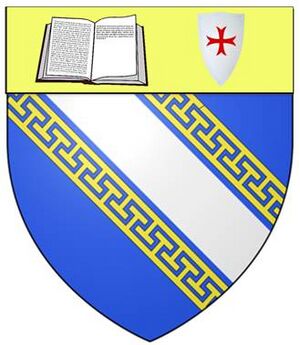Mesnil-Saint-Loup facts for kids
Mesnil-Saint-Loup is a small commune located in the Aube département in the north-central part of France. A commune is like a local town or village area, similar to a municipality, and it's the smallest way France divides up its land for local government. Mesnil-Saint-Loup is a quiet place, part of the larger French countryside.
Contents
What is a Commune?
In France, a commune is the smallest unit of local government. Think of it as a town or village, along with the land around it. Each commune has its own mayor and a local council. These councils make decisions about things like local roads, schools, and public services for the people who live there.
How Communes Work
Every commune, no matter how big or small, has a mayor. The mayor is in charge of running the commune day-to-day. They also represent the national government in their area. This system helps manage local life across all of France.
The Role of a Mayor
The mayor of a commune has many duties. They are responsible for keeping public order and managing the local budget. They also oversee local services like waste collection and maintaining public buildings. Mayors are elected by the people living in the commune.
Geography of Mesnil-Saint-Loup
Mesnil-Saint-Loup is situated in the Aube department. This area is known for its gentle hills and agricultural lands. The landscape is typical of the French countryside, with fields and small forests.
Location in France
The Aube department is in the Grand Est region of France. This region is in the northeastern part of the country. Mesnil-Saint-Loup is not far from larger cities, but it keeps its peaceful, rural feel.
History of the Area
Like many small French communes, Mesnil-Saint-Loup has a long history. Its name likely comes from old French words describing a small estate or farm. Over centuries, these small settlements grew into the communes we know today.
Life in a French Commune
Life in a small commune like Mesnil-Saint-Loup often involves a close-knit community. People might know their neighbors well and participate in local events. These communes are important for preserving traditional French culture and rural life.
See also
 In Spanish: Mesnil-Saint-Loup para niños
In Spanish: Mesnil-Saint-Loup para niños
 | Victor J. Glover |
 | Yvonne Cagle |
 | Jeanette Epps |
 | Bernard A. Harris Jr. |


